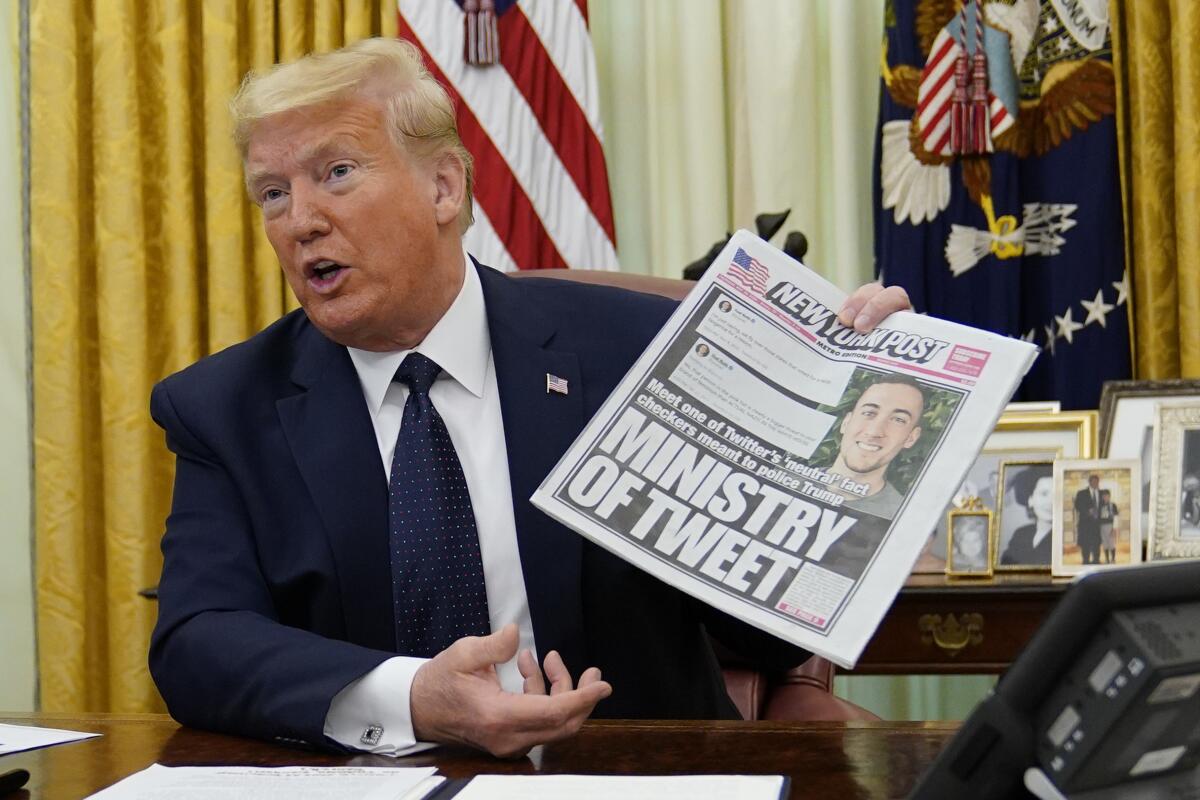Trump threatens to veto defense bill over liability protections for tech companies

President Trump on Tuesday night threatened to veto the annual defense appropriations bill unless Congress abolishes a law that protects technology companies from liability over most content published by their users.
In a tweet, he called Section 230 of the Communications Decency Act “a serious threat to our National Security & Election Integrity.”
“Therefore, if the very dangerous & unfair Section 230 is not completely terminated as part of the National Defense Authorization Act (NDAA), I will be forced to unequivocally VETO the Bill when sent to the very beautiful Resolute desk. Take back America NOW. Thank you!” Trump wrote on Twitter — one of the platforms shielded from liability.
The defense act is a massive, crucial piece of legislation that authorizes, among many things, military pay raises and extra pay for troops on dangerous assignments. It has passed every year for the past 59 years.
While politicians from both parties have called for Section 230 to be weakened or revised, Trump and others on the political right have long complained that companies such as Facebook Inc. and Twitter Inc. have tried to suppress conservative opinions. The Trump administration’s wish to alter or even repeal the law has taken on greater urgency since the president was defeated by Joe Biden.
The White House has pushed for language that’s very similar to the Online Freedom and Viewpoint Diversity Act, a bill sponsored by Senate Commerce, Science and Transportation Committee Chairman Roger Wicker.
Trump’s executive order targeting Twitter is based on a law called Section 230 — which may be the most important law for speech on the internet
“Section 230 has to be changed,” Sen. Lindsey Graham (R-S.C.), chairman of the Judiciary Committee, said at a hearing last month in which Facebook Chief Executive Mark Zuckerberg and Twitter CEO Jack Dorsey answered questions.
It is unclear how far Trump will go to make the elimination of Section 230 a condition of the Defense Authorization Act. But in July he threatened a veto because the bill called for renaming U.S. military installations that honor Confederate generals, including Ft. Benning in Georgia and Ft. Lee in Virginia.
More to Read
Get the L.A. Times Politics newsletter
Deeply reported insights into legislation, politics and policy from Sacramento, Washington and beyond. In your inbox three times per week.
You may occasionally receive promotional content from the Los Angeles Times.











